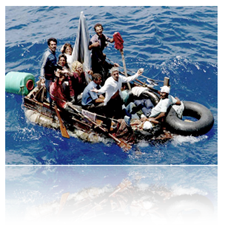Whenever I feel discouraged by the steady drumbeat of domestic assaults on liberty — from Obamacare to parents being accused of “child neglect” for letting their kids return from a playground by themselves — I try to remind myself:
Things Could Be Worse.
World history provides plenty of support for this dictum, but so does a glance at the newspaper. Like the story of how a single satiric Instagram post “could end up sending a former Miss Turkey to jail.”
An Istanbul prosecutor has been threatening to imprison Merve Büyüksaraç for up to two years for the heinous deed of insulting an official. Last summer she excerpted a satirical piece called “The Master’s Poem” that originally appeared in the magazine Uykusuz. Uykusuz has a habit of mocking Turkish politicians, including President Erdoğan.
“I shared it because it was funny to me,” she says. “I did not intend to insult Recep Tayyip Erdoğan.” Regardless of her motive, her post should not have put her at legal risk.
Buyuksarac is popular on social media — 15,000 followers on Instagram, double that on Twitter — a presence that makes her a target. The Turkish government doesn’t care whether she is an ardent dissident. They obviously just want to intimidate others with a readership who are inclined to ruffle the feathers of the powerful even a little.
So yes, things could be worse. Lots worse. They could also be a lot better. That’s what we have to fight for.
This is Common Sense. I’m Paul Jacob.





